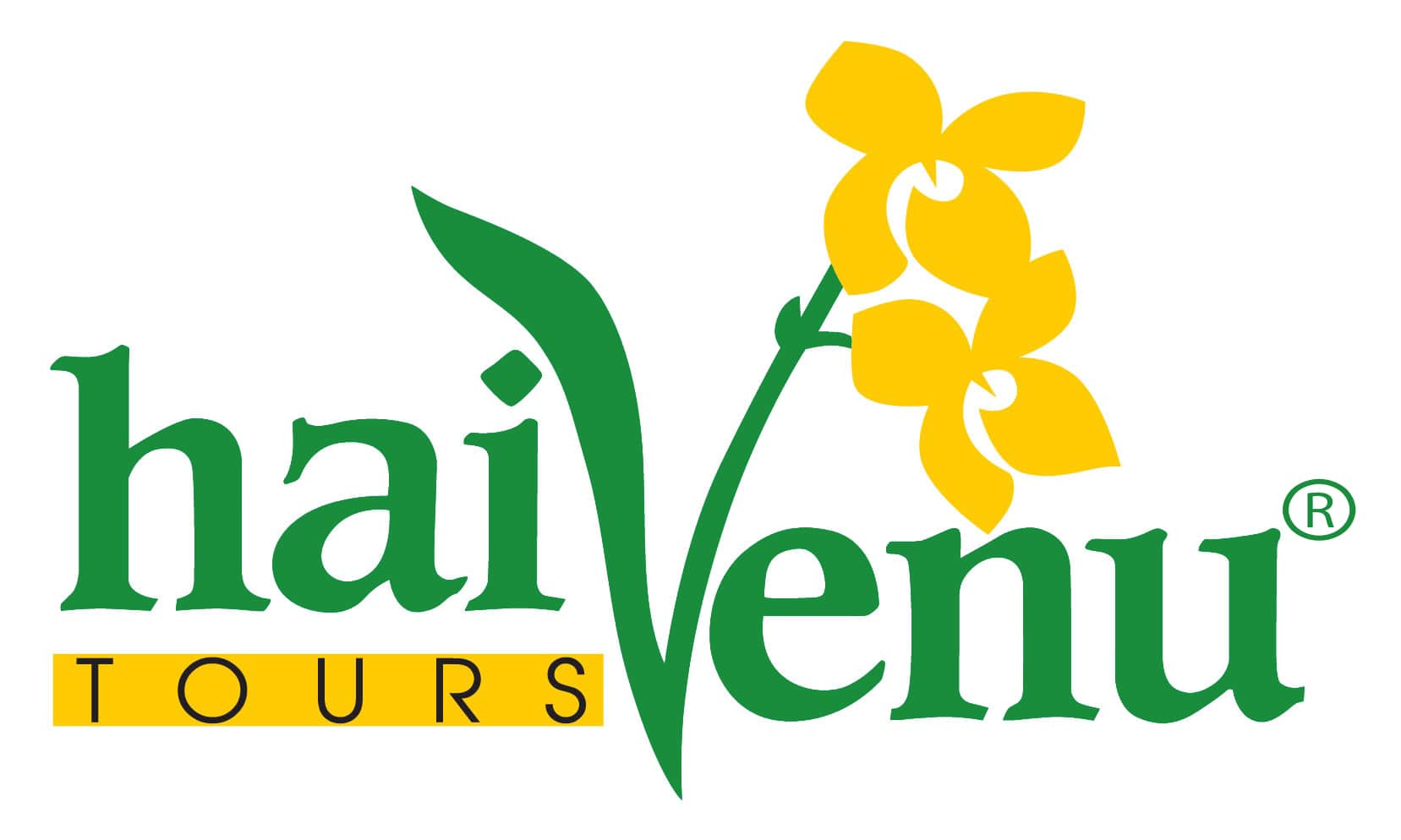Exploring Vietnam: Tips for a Safe and Enjoyable Trip
Last Updated on 26 January, 2025 by admin
Vietnam, increasingly recognized as a gem of Southeast Asia, captivates travelers with its vibrant culture, breathtaking landscapes, and bustling cities. From the serene waters of Ha Long Bay to the lively streets of Ho Chi Minh City and the historic charm of Hoi An, Vietnam offers a diverse and unforgettable travel experience. As a top destination, it is generally safe for tourists, but being mindful of Vietnam safety tips is essential. Travelers should familiarize themselves with local customs, traffic laws, and be aware of common tourist scams to ensure a secure and enjoyable journey. This guide provides valuable Vietnam travel tips and insights to help visitors fully embrace the beauty, culture, and excitement of exploring Vietnam without unnecessary worries.
Common Concerns
Vietnam is widely regarded as a safe destination for tourists, but like any bustling travel hotspot, it has its own set of challenges that travelers should be aware of. Petty crimes in Vietnam, such as pickpocketing and bag snatching, are among the most common issues, particularly in crowded areas like local markets, popular tourist attractions, and public transport hubs. Travelers should also be cautious of common scams in Vietnam, which may involve inflated prices or misleading offers from street vendors, taxi drivers, or even accommodations.
Another major concern is road safety in Vietnam, as traffic laws are often ignored, and streets are teeming with motorbikes, cars, and bicycles. Crossing the street can be particularly daunting for pedestrians, as traffic is often chaotic and motorbike riders frequently disregard traffic signals. Visitors renting motorbikes or cars should be experienced in handling such conditions and take extra precautions. By being mindful of these Vietnam safety tips and taking simple measures, tourists can minimize risks, avoid unpleasant experiences, and enjoy a safe, memorable trip while exploring Vietnam.
Health and Wellness
For travelers heading to Vietnam, taking proper health precautions can significantly enhance their trip experience. Before departure, it’s recommended to consult a travel health clinic or medical professional to discuss necessary vaccinations. Commonly advised vaccines for Vietnam include Hepatitis A and B, typhoid, and tetanus, among others. If visiting rural areas where malaria is prevalent, anti-malarial medication may also be recommended as part of a comprehensive Vietnam travel health plan.
Food safety in Vietnam is another essential consideration. While Vietnamese cuisine is celebrated for its freshness and vibrant flavors, food poisoning can occur due to unhygienic handling practices. To minimize risks, travelers should choose reputable restaurants or busy street food stalls with high customer turnover, ensuring food is freshly prepared. Avoiding raw or undercooked meats and seafood, as well as peeling fruits and vegetables, are effective steps to protect against foodborne illnesses.
When it comes to drinking water in Vietnam, tap water is not considered safe, even in major cities. Instead, opt for bottled water, which is widely available and inexpensive. Always check that the seal on the bottle is intact to avoid tampered products. For extra precaution, using a portable water filter or water purification tablets can further reduce the risk of waterborne illnesses. Following these health and wellness tips will ensure travelers remain safe and healthy while enjoying the incredible sights, flavors, and experiences that exploring Vietnam has to offer.
Cultural Sensitivity and Awareness
When traveling in Vietnam, demonstrating respect for local customs and traditions is key to fostering positive interactions and creating a harmonious experience. Embracing cultural sensitivity and awareness can greatly enhance the quality of your journey and your relationships with the local community.
A fundamental aspect of cultural respect in Vietnam is following appropriate dress codes, particularly when visiting religious sites like pagodas, temples, and communal houses. Modesty is highly valued, so visitors should wear clothing that covers shoulders and knees. In places such as the My Son sanctuaries or certain Buddhist pagodas, stricter attire may be required, making it a good idea to carry a scarf or shawl to cover up as needed.
Interacting respectfully with locals involves understanding basic Vietnamese social customs. A slight bow with a smile or a handshake is a common and polite greeting. When giving or receiving items, using both hands is a sign of respect. Visitors should also avoid public displays of affection, especially in rural or traditional areas, as it may be considered inappropriate. Likewise, openly showing anger or frustration is discouraged, as maintaining a calm demeanor is highly valued in Vietnamese culture.
Photography etiquette is another important consideration. Always ask permission before taking photos of people, particularly in ethnic minority villages or more private settings. This simple act of respect can lead to more meaningful and friendly interactions. By following these Vietnam travel tips on cultural sensitivity, visitors can ensure their experiences are both respectful and deeply enriching while immersing themselves in the vibrant traditions of exploring Vietnam.
Safety Tips for Different Traveler Types
When visiting Vietnam, travelers may face unique safety concerns depending on their situation. Whether you’re a solo adventurer, traveling with family, or have special needs, these tailored Vietnam safety tips can ensure a smooth and enjoyable trip.
Solo Travelers, Especially Women
Solo travel in Vietnam is generally safe, but precautions are always wise. Women traveling alone should stay alert, particularly at night. Opt for accommodations in well-lit, central locations, and keep belongings secure at all times. Share your travel itinerary with a trusted contact and check in regularly. Dressing modestly can help you blend into the local culture and avoid unwanted attention. Additionally, familiarize yourself with common tourist scams and avoid isolated areas when exploring after dark.
Families Traveling with Children
Vietnam is known for being a family-friendly destination, and locals are typically welcoming to children. However, families should prioritize safety and health. Watch children closely in crowded areas like markets or street festivals, where it’s easy for them to wander off. Be cautious with Vietnamese street food, as it may be too spicy or unsuitable for young stomachs. Always carry a first-aid kit for minor injuries, along with essentials like sunscreen and mosquito repellent. Staying hydrated is particularly important for children in Vietnam’s hot and humid climate.
Elderly Travelers or Those with Special Needs
For elderly travelers or individuals with special needs, thorough preparation is key. Confirm with accommodations and transport providers about accessibility features such as elevators or ramps. Hiring a local guide can be invaluable for navigating cultural and logistical challenges, as well as overcoming potential language barriers. Keeping a list of nearby medical facilities and carrying a medical alert card with health details can be a lifesaver. If mobility is a concern, consider booking private tours or transport options that cater to specific needs.
General Safety Tips for All Travelers
No matter the traveler type, purchasing comprehensive travel insurance is highly recommended, covering medical expenses, theft, and unexpected disruptions. Keep a list of emergency contacts, including your home country’s embassy or consulate in Vietnam. Being informed, prepared, and cautious will help you maximize your safety and enjoyment while exploring Vietnam.
Avoiding Scams in Vietnam
When traveling in Vietnam, being aware of common tourist scams is crucial for ensuring a safe and enjoyable experience. Scammers often target unsuspecting tourists, but with the right knowledge and precautions, you can minimize risks and focus on exploring this beautiful country. Here’s a detailed guide on how to recognize scams, protect yourself, and handle situations effectively.
Recognizing Common Tourist Scams
- Overpriced Taxi Rides
Some taxi drivers may take longer routes or use rigged meters to inflate fares. To avoid this, stick to reputable companies like Mai Linh or Vinasun, or use ride-sharing apps such as Grab, which allow you to track routes and fares in advance. - Street Vendor Overpricing
Street vendors may charge tourists excessively high prices for food, souvenirs, or other goods. To avoid being overcharged, always negotiate prices or compare rates with multiple vendors before making a purchase. Learning basic Vietnamese phrases like “Bao nhiêu tiền?” (How much is it?) can also help. - Motorbike Rental Scams
Renting a motorbike is a popular way to explore Vietnam, but some rental shops may claim you caused pre-existing damage to the bike. Always inspect the motorbike carefully before renting and take clear photos or videos as evidence of its condition. Ensure you rent from reputable shops to avoid unnecessary disputes. - Fake Tour Operators
Fraudulent tour operators offering discounted tours may provide subpar services or even disappear with your money. Verify the operator’s legitimacy by checking reviews on trusted platforms like TripAdvisor or Google.
Steps to Avoid Becoming a Victim
- Research Before You Travel
Familiarize yourself with common scams in Vietnam by reading online travel forums and blogs. Knowing what to expect will help you identify scams quickly. - Secure Your Valuables
Use a money belt or an anti-theft bag to keep your belongings safe, especially in crowded areas like markets or public transport hubs. Avoid wearing flashy jewelry or displaying expensive gadgets. - Use Trusted Payment Methods
Pay cash for small transactions and avoid giving your credit card to vendors who seem untrustworthy. If card payments are necessary, ensure it’s done at a secure, reputable location. - Be Wary of Free Offers
Scammers may approach with “free gifts” or offers of assistance only to demand money later. Politely decline such offers to avoid being caught in their trap.
What to Do if You Encounter a Scam
- Stay Calm and Composed
Scammers often rely on creating pressure or panic to coerce victims into compliance. Stay calm and take time to assess the situation before responding. - Firmly Decline
If you suspect a scam, politely but firmly refuse any offers or demands. Scammers are more likely to back off if they sense you’re aware of their tactics. - Seek Assistance
In uncomfortable situations, seek help from local authorities, hotel staff, or nearby locals. They may be able to assist you in resolving the issue. - Report the Incident
To protect other travelers, report the scam to local tourist police, your embassy, or online travel forums like TripAdvisor. Sharing your experience helps raise awareness and reduces the risk for future tourists.
By staying vigilant, informed, and prepared, you can navigate Vietnam confidently and avoid falling victim to scams. Following these Vietnam travel tips ensures a more enjoyable and secure journey, allowing you to focus on the country’s incredible landscapes, culture, and hospitality.
Emergency Preparedness in Vietnam
Being prepared for emergencies is essential when traveling in Vietnam. Whether it’s a medical issue, lost belongings, or unexpected situations, having a plan in place can make a significant difference in how effectively you handle challenges. Here’s a detailed guide to ensure you’re ready for any unexpected events during your journey.
Handling Medical Emergencies
- Know the Local Emergency Numbers
In Vietnam, the key emergency numbers are:- 113 for police
- 114 for fire
- 115 for medical emergencies
Keep these numbers easily accessible, either in your phone or written down.
- Locate Nearest Hospitals and Clinics
Before your trip, identify the nearest hospitals or international clinics near your accommodations. Major cities like Hanoi and Ho Chi Minh City have well-equipped facilities, such as FV Hospital and Vinmec International Hospital, which cater to foreign travelers. - Carry a Basic First Aid Kit
Especially if you’re exploring rural or remote areas, pack a first aid kit with essentials such as bandages, antiseptic wipes, pain relievers, and any personal medications. Knowing basic first aid procedures can also be invaluable in emergencies.
Emergency Contacts
- Embassies and Consulates
Keep the contact details of your country’s embassy or consulate readily available. They can assist with issues like lost passports, legal troubles, or evacuations. For example, the U.S. Embassy in Hanoi and the British Consulate in Ho Chi Minh City are common points of contact for foreign travelers. - Local Help Lines
Apart from emergency numbers, note any local tourist hotlines that provide support. For example, Vietnam’s tourist assistance hotline (1900 1109) can help with scams, safety concerns, or other issues travelers may face.
Travel Insurance
- Comprehensive Coverage
Ensure your travel insurance policy includes coverage for medical expenses, including emergency medical evacuation, as these services can be expensive. Activities like motorbiking, trekking, or exploring remote areas require policies that cover adventure-related risks. - Understand the Policy
Be clear about your policy’s inclusions and exclusions. For instance, check if it covers hospitalization costs, outpatient treatments, or personal liability. - Keep Documentation Accessible
Carry both electronic and paper copies of your insurance policy. Note the procedure for contacting your insurance provider from abroad, including emergency hotlines.
Additional Tips
- Register with Your Embassy
Upon arrival, register with your country’s embassy or consulate if they offer a registration service. This allows your government to contact you during national emergencies or natural disasters. - Inform Others of Your Travel Plans
Always let someone know your travel itinerary, particularly if you’re venturing into remote or less populated areas. This ensures someone can raise an alarm if you don’t return as planned. - Learn Basic Vietnamese Phrases
Knowing a few key phrases in Vietnamese can be immensely helpful in emergencies. For example:- “Giúp tôi với!” (Help me!)
- “Tôi bị lạc.” (I’m lost.)
- “Tôi cần bác sĩ.” (I need a doctor.)
By following these Vietnam emergency preparedness tips, you can navigate unexpected situations with greater confidence and peace of mind. With proper planning, you’ll be free to focus on enjoying Vietnam’s incredible culture, landscapes, and hospitality without undue stress.
Natural Disasters
In Vietnam, being aware of natural hazards such as typhoons, floods, and occasional landslides is essential for traveling safely, especially during certain seasons. Here’s what you need to know about these risks and how to stay safe.
Common Natural Hazards:
- Typhoons: Vietnam commonly faces typhoons, with the central and northern regions being the most affected, especially from May to October. These can lead to significant flooding and disruptions.
- Flooding: Even outside of typhoon season, heavy rains can cause sudden flooding in various parts of the country, including major cities like Hanoi and Ho Chi Minh City.
- Landslides: Particularly in mountainous areas like the northern highlands, heavy rainfall can trigger landslides that block roads and pose serious risks to travelers.
Safety Protocols During Natural Disasters:
- Stay Informed: Always check the weather forecast for your destination. Apps and local news channels can provide updates on weather conditions.
- Follow Local Guidance: Heed any warnings or evacuation orders issued by local authorities. Hotels and tour operators should have protocols in place for such events.
- Emergency Kit: Keep an emergency kit with essentials like water, snacks, a flashlight, batteries, and basic first aid supplies.
Seasonal Considerations:
- Travel Planning: Avoid planning trips during the peak typhoon season if possible, especially to the more vulnerable regions. If traveling during this time, ensure flexibility in your itinerary to accommodate last-minute changes due to weather conditions.
- Accommodation Safety: Choose accommodations that are well-equipped to handle adverse weather conditions. This is particularly important in coastal and low-lying areas where flooding is more prevalent.
- Insurance: Make sure your travel insurance covers natural disaster-related incidents, which can help mitigate losses due to trip cancellations or emergencies during your stay.
Understanding these elements and preparing accordingly can greatly reduce the risks associated with natural disasters while traveling in Vietnam. This preparation allows you to enjoy your visit with greater peace of mind, knowing you’re equipped to handle potential natural challenges.
Conclusion
In conclusion, while Vietnam is a stunningly beautiful and culturally rich destination, it’s crucial for travelers to stay informed and prepared to ensure a safe and enjoyable experience. Here’s a quick recap of the essential safety tips:
- Stay Aware of Local Conditions: Understanding the cultural norms, respecting local customs, and being cautious of the common petty crimes can enhance your travel experience.
- Health Precautions: Adhere to recommended health guidelines, including vaccinations and food safety practices, to avoid any health issues.
- Be Prepared for Emergencies: Know the basic emergency procedures and keep a list of essential contacts, including local emergency services and your embassy.
- Natural Disaster Awareness: Pay attention to seasonal weather conditions and heed any travel advisories related to natural disasters like typhoons and flooding.
Traveling with these safety measures in mind will not only protect you but also enrich your journey, allowing you to dive deep into the vibrant life, breathtaking landscapes, and the welcoming spirit of Vietnam’s people. Remember, most visits to this spectacular country are trouble-free, and with the right precautions, yours should be as well. Enjoy the adventure that awaits in Vietnam, confidently and safely!




